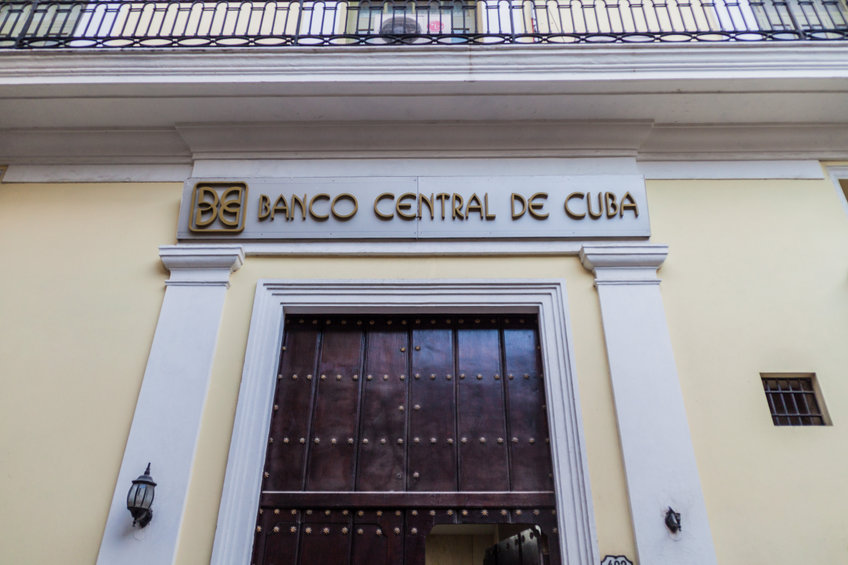
Mit der Kombination von Bitcoin und Gold will die Schweizer Investmentfirma 21Shares den Investoren das bestmögliche Inflationsabsicherungsmittel auf dem Markt bieten.

Finanzmittel Info + Krypto + Geld + Gold
Krypto minen, NFT minten, Gold schürfen und Geld drucken

Mit der Kombination von Bitcoin und Gold will die Schweizer Investmentfirma 21Shares den Investoren das bestmögliche Inflationsabsicherungsmittel auf dem Markt bieten.

Historischer Tag für Kryptowährungen in Brasilien: Der Senat hat endlich einen Gesetzesvorschlag verabschiedet, um den Kryptomarkt zu regulieren.

The topic of Central Bank Digital Currencies (CBDCs) is one that is only beginning to break into mainstream consciousness.
While many crypto enthusiasts hope more countries will follow El Salvador’s lead and adopt Bitcoin as legal tender, stablecoins seemingly present as a less ambitious case for sovereign adoption, given they are immune to the volatility that plagues Bitcoin. Simply digital iterations of their fiat alternatives, the exchange rate is pegged one-to-one, and their value does not fluctuate.
But while there are small-time examples, such as the city of Lugano in Switzerland, where decentralised stablecoins such as Tether (USDT) can be used as legal tender, there are also a lot of governments working on their own, centralised stablecoins.
According to PwC, none are more advanced than the Bahamas, where the Central Bank issued a digital version of the Bahamian dollar in October 2020. Colloquially referred to as the Sand Dollar, it carries the exact same utility, legal status and authorisation as it’s conventional fiat alternative.
The advantages are many. Speed, efficiency and security of payments are the main ones, with an overall reduction in friction thanks to the blockchain. The Bahamas also hopes to leverage the publicity of the initiative, helping to place the nation as the crypto hub of the Caribbean.
The trackable nature of the blockchain will also help in restraining money laundering, counterfeit, fraud and all sorts of financial crimes. Additionally, the announcement cited the benefits that could be reaped in the loan market ,with the CBDC able to “provide an excellent record of income and spending, which can be used as supporting data for micro-loan applications”.
However, not all consequences of CBDCs are positive. There are very real privacy concerns here, with the government theoretically able to track exactly what you spend, when you spend and who you spend it with. Accounts can also be frozen at will – think Tether who have frozen certain USDT in the past following hacks.
This raises all sorts of questions about a potential dystopian scenario, whereby increasingly sci-fi notions, such as social credit scores being leveraged automatically off payment activity, could be implemented by governments. Let’s say the government knew you spent $10 last night to gamble on the football, and this was automatically reflected in your credit score – or worse, your social score. It’s easy to let the mind wander to the power this would give more authoritarian governments.
Is absolute sovereign control over citzens’ finances a good thing? They already control the monetary environment regarding printing, inflation and interest rates, which is the reason so many give for turning to Bitcoin. With CBDCs, they could implement sanctions at will, have full visibility over your net worth, tax liabilities, spending habits and many other facets of your life, given how central money is to transacting in today’s world.
Right now, thankfully, these remain notions confined to Black Mirror plotlines. However, CBDCs do bring the potential for these scenarios closer, and open up the possibility of unfathomable power for a sovereign state. Absolute centralisation within cryptocurrency is a dangerous game, given the trackable nature of the blockchain and the digital wallet infrastructure attached to it.
Bahamas, thus far, are leading the charge. For this case specifically, all systems point towards this being merely a step towards efficiency, and an innovative tool to help build a wider crypto ecosystem for the Caribbean nation.
Still, with other governments – such as China – working on iterations of their own CBDCs, it’s valid to worry about the potential power these CBDCs could grant if leveraged in certain ways. This rings especially true for more authoritarian governments.
The post Bahamas have the world’s most advanced official digital currency, but is that a bad thing? appeared first on Coin Journal.

Bybit, a Singapore-based crypto exchange established in 2018, announced its extension into the crypto options trading in addition to its current product line of expiration and perpetual futures contracts.
This decision of developing a new options trading offering was highly influenced by the growing community demand, calling for a better tool for its users.
Once Bybit launches the crypto options trading, its users will be able to trade USDC options through a portfolio margin. Besides, the platform will come with a user-friendly interface and a fully integrated trading venue.
During the announcement release, Bybit Co-founder and CEO, Ben Zhou said:
“We are confident that our state-of-the-art offering will set the bar for the sector and normalize crypto options trading, just like what Robinhood did for stock options. We are also excited to bring with us to options trading the world-class liquidity and reliability our clients have come to associate with Bybit.”
The newly launched feature will not work any differently from the other traditional finance, however, it allows its users to project the future value of the asset in the United States dollar value as well as settle the trade using USDC.
Currently, Bybit has over two million registered users with a couple of partnerships with some of the prominent companies like Oracle Red Bull Racing, Astralis, Oracle Red Bull Racing Esports, esports NAVI, Alliance, and associations football teams Avispa Fukuoka and Borussia Dortmund, Virtus.pro, and Formula One racing team.
The post Bybit launches crypto options trading due to user demand appeared first on Coin Journal.

The Central Bank of Cuba (BCC) has announced that it will provide licenses to both Cuban and international virtual asset service providers, including organizations, individuals, or legal persons. This Spanish-language resolution was also published on Cuba’s official gazette.
However, the authorized licenses will be valid for one year upon which it might be extended for the second year.
The Central Bank of Cuba, @BancoCentralCub, will issue licenses for virtual asset service providers, it announced Tuesday. @andresengler reportshttps://t.co/Eaxcuo7nlF
— CoinDesk (@CoinDesk) April 27, 2022
The resolution noted that the providers will be able to work with only BCC-approved virtual assets.
‘’virtual assets do not contain digital representations of fiat currency, securities, and other financial assets extensively employed in traditional banking and financial systems, which other Central Bank of Cuba laws control.”
On Thursday, BCC recapped that the previous resolution enabled the bank to issue the licenses to the providers for the transaction of assets linked to exchange, collection, financial, or payment activities both at the national level and beyond.
Even though the government agencies would only use the virtual assets for transactions if only BCC permits them, the current resolution did not address the issue of how the Cuban government will tax the transaction of virtual assets.
However, the government stated that BCC will deny or grant the sought license within ninety working days after conferring with the Crypto Assets Group licensing.
Besides, the providers will only operate under BCC approval, The ministry of finance and prices approved by the Cuban Financial Reporting Standards will also require them to keep their accounting records on how they will be operating.
The post Cuban Central Bank to license Virtual Asset Providers appeared first on Coin Journal.